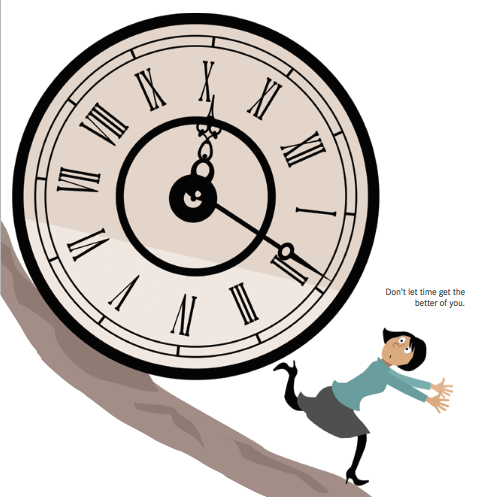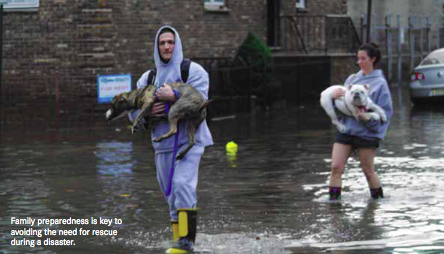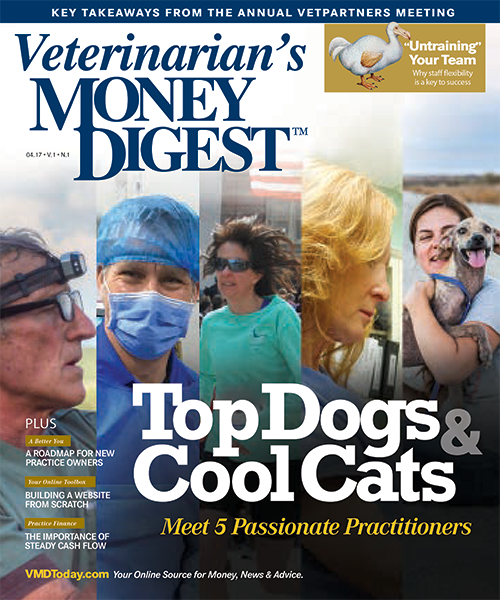Advice Unleashed (April 2017)
Tips and insight from business, financial and practice management experts.

Financial Adviser Camala Bailey, CPA, CVA, owner of Camala C. Bailey, CPA, PC, says that managing your email will help you better control your time. Here are five quick email tricks:
- Stop unwanted email. Unsubscribe from all the emails you never read.
- Keep your outgoing emails short and sweet. You don’t have to write love letters, and you don’t have to say ‘Best regards’ at the end; a quick sign-off is fine.
- Turn off the noise. If you hear a ding every time you get an email, aren’t you drawn to it? I know I am.
- Schedule email time. I schedule time when I arrive in the morning, right before lunch, and again right before I go home. When I made that change, my productivity increased significantly.
- Don’t play Ring Around the Rosie. If you’re exchanging emails with someone over and over in a single sitting, the best thing to do is just pick up the phone.
Project Confidence, Not Narcissism
Brian Faulkner, BSc(Hons), BVM&S, CertGP(BPS), CertGP(SAM), MBA, MSc(Psych), MRCVS, owner of a small animal practice and the practice management coaching website colourfulconsultation.com, says it is important for leaders to understand the difference between confidence and narcissism. He explains the key traits of both:

“Most people feel that others are more confident than they are. It can be very intimidating to walk in alone to a party or other crowd. Everyone seems engaged in conversation, and you feel lost. Confidence is believing that you don’t have to fake anything or be too pushy or be the center of attention. People who are genuinely confident are humble. They don’t have to sell themselves.
Narcissism, on the other hand, is about a shame-based fear of never feeling extraordinary enough. Narcissists aren’t really that confident or superior, despite publicizing how amazing they are, often on social media. That’s a call for attention and reflects insecurity.
More wholesome, authentic confidence is about thinking, ‘I’ll take congratulations humbly when they’re appropriate, but I don’t have to seek out praise.’”
Financial Advice for New Practice Owners
According to Karl Salzsieder, DVM, JD, CVA, owner of Salzsieder & Associates, TPSG, LLC/DBA Total Practice Solutions—Northwest, “The biggest mistake I see with new practice owners is that they’re hesitant to hire a consultant because they’re such superheroes regarding the emotional attachment to their profession and the care of animals. Commonly they’re so short on management ability that they are not making their practices profitable enough to realize their full value, and this hurts succession planning, retirement and exit.”
What does Dr. Salzsieder advise? “Hire a consultant as soon as possible after the purchase. In addition, act like a corporate practice with regard to the transition by retaining the seller as long as you can. Also, hold off for a bit on sending out ‘I’m the new owner’ letters. They might scare clients away.”
Battle Burnout and Compassion Fatigue
“We need to talk about the signs of burnout, how it happens, and what to do,” says Deborah Stone, MBA, PhD, CVPM, CEO of Stone Veterinary Practice Management. We also need to be mindful of compassion fatigue, which is seen often in the health care professions. “We go, we give, we go and we give, and we often just don’t take care of ourselves. We need to have more conversations about these problems and learn more about how to identify the signs. If you think someone in your practice is at risk, check in with him or her. It’s not always easy to do, but it goes a long way. Many resources are available to learn more about well-being and taking better care of ourselves so we can take better care of our clients, our team members, and our patients.”
The Value of Pet Insurance
According to T.J. Houk, chief data officer at Trupanion, experiences with pet health insurance companies continue to improve. “We’ve seen the number of insured cats and dogs grow significantly over the past 10 years or so, and we expect that to continue. Veterinarians are starting to become more confident in understanding the benefits of insurance both for the pet’s health and for their practice’s financials. Clients are growing more confident that the products out there are going to be there when they need them, and the companies are providing more transparency. We have thousands of situations where veterinarians have seen an insurance policy in action, so they can take it back to pet owners and share their experiences. More positive experiences over time will drive more adoption.”
Put More Business Into Veterinary School
“Many schools today have veterinarians with advanced degrees in business and finance on staff who are helping to teach some of these business skills,” says Mike Chaddock, DVM, EML, associate dean of the College of Veterinary Medicine at Michigan State University, “but we can do more. We need to integrate business skills, knowledge and assessment into the four years of schooling. If students are exposed throughout all four years to information about business principles, expenses and income that knowledge will become imprinted on them. We need to be creative so that we are not adding more courses to the curriculum but instead are collaborating with different disciplines to provide students with this vital knowledge.”

“When I talk to veterinarians about dreaming,” says Peter Weinstein, DVM, MBA, executive director of the Southern California Veterinary Medical Association and the owner of consulting firm PAW Consulting, “it’s really about trying to get them to think differently, to have a vision for where they want to go with their practice and how that practice dream will fulfill their life dream.
I really want veterinarians to think about their future. I like to think of it metaphorically as programming your GPS. If you don’t program your GPS, you’ll never get to your final destination. In essence, you’ll just drive around in circles. So, program your personal GPS with a dream, a vision, and a future, and then create a dream for your practice that will deliver on the personal dream you’ve created as well — whether that dream is to retire comfortably at age 65 or to practice until you’re 75. Whatever your particular dream may be, try to set a future and a vision for yourself and then spend your life trying to accomplish that so that you’re constantly moving forward, constantly trying to reach that final outcome.”
Prepare Clients for Natural Disasters
Anne McCann, national emergency programs coordinator at the U.S. Department of Agriculture, Animal Care, says that family preparedness is a critical aspect of helping the country recover from disasters. “Local veterinarians really play a key role in ensuring that their clients are prepared to take care of the animals in their lives should a disaster occur. If people aren’t prepared to evacuate with their pets or shelter in place with them during a disaster — with sufficient supplies on hand to weather the storm, so to speak — then we don’t get where we need to be with family preparedness.

Everybody needs to be prepared to take care of themselves for at least three days to a week following a disaster. In Superstorm Sandy (in 2012), for example, one of the crazy things for me was how quickly people ran out of pet food. That was a disaster where we were given at least a week’s notice that this was going to be a huge storm. Yet, almost immediately after the disaster people ran out of pet food but couldn’t get it because the power was out, they couldn’t use the elevators in their apartment buildings and all the stores were closed.”
